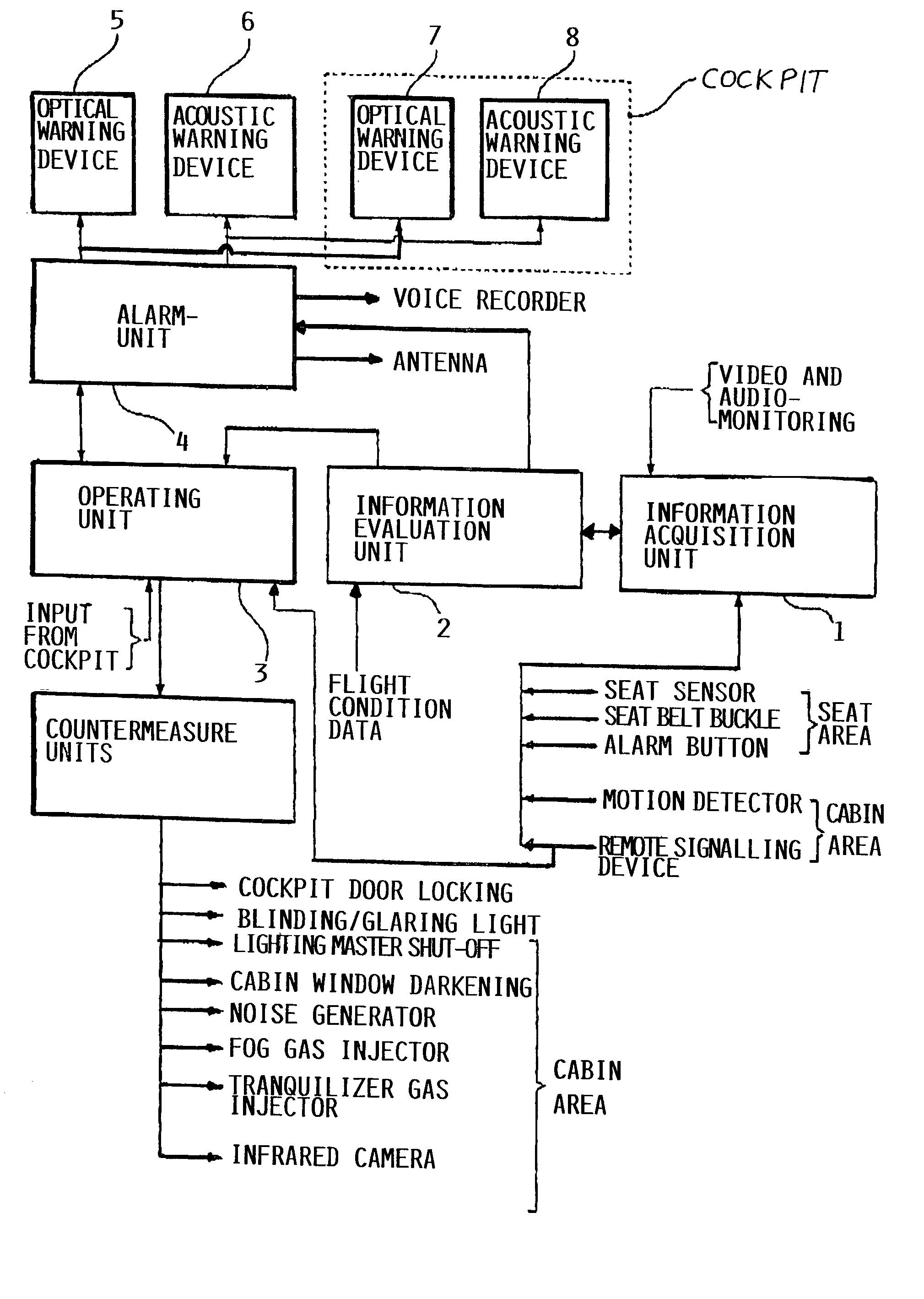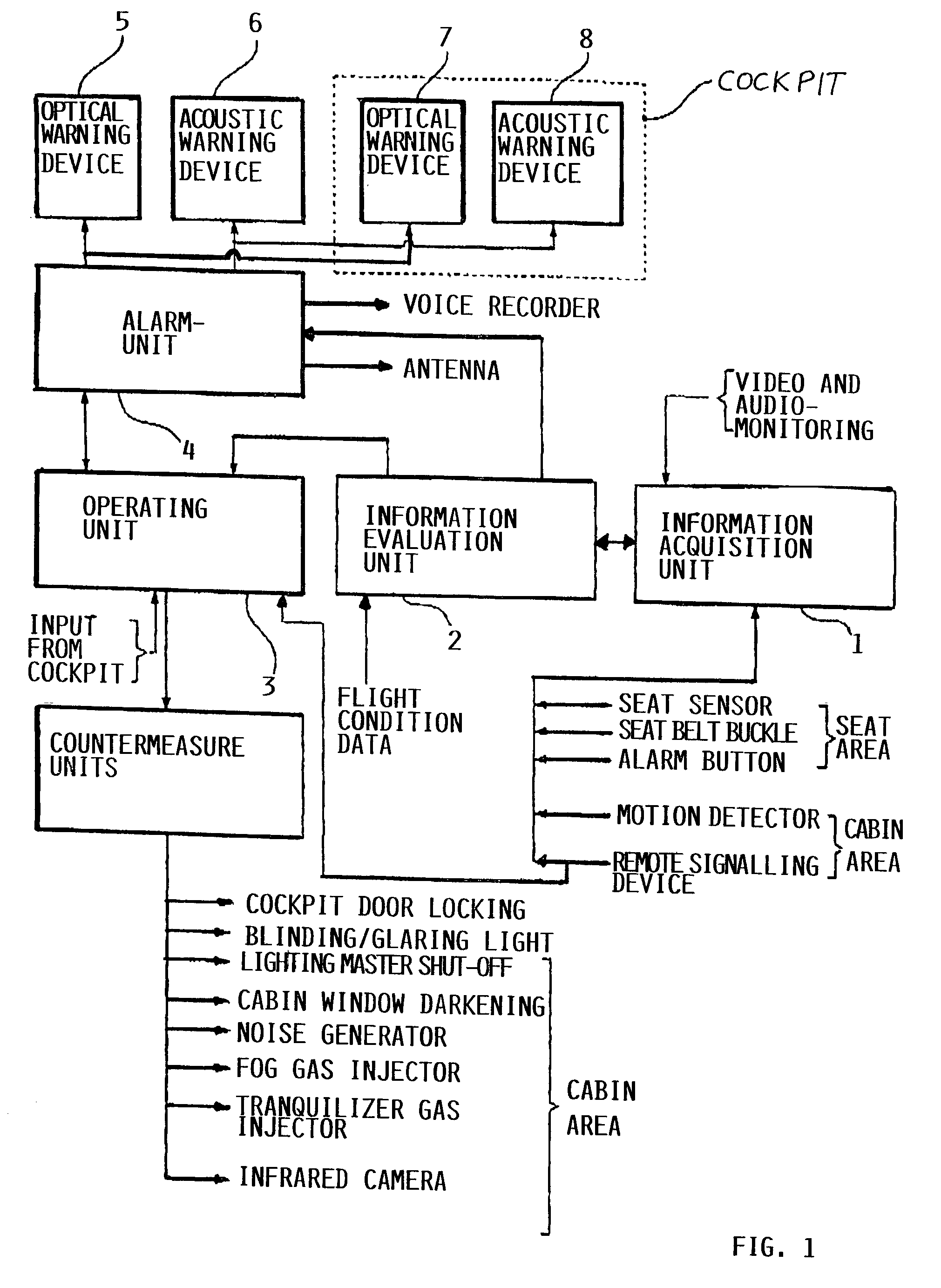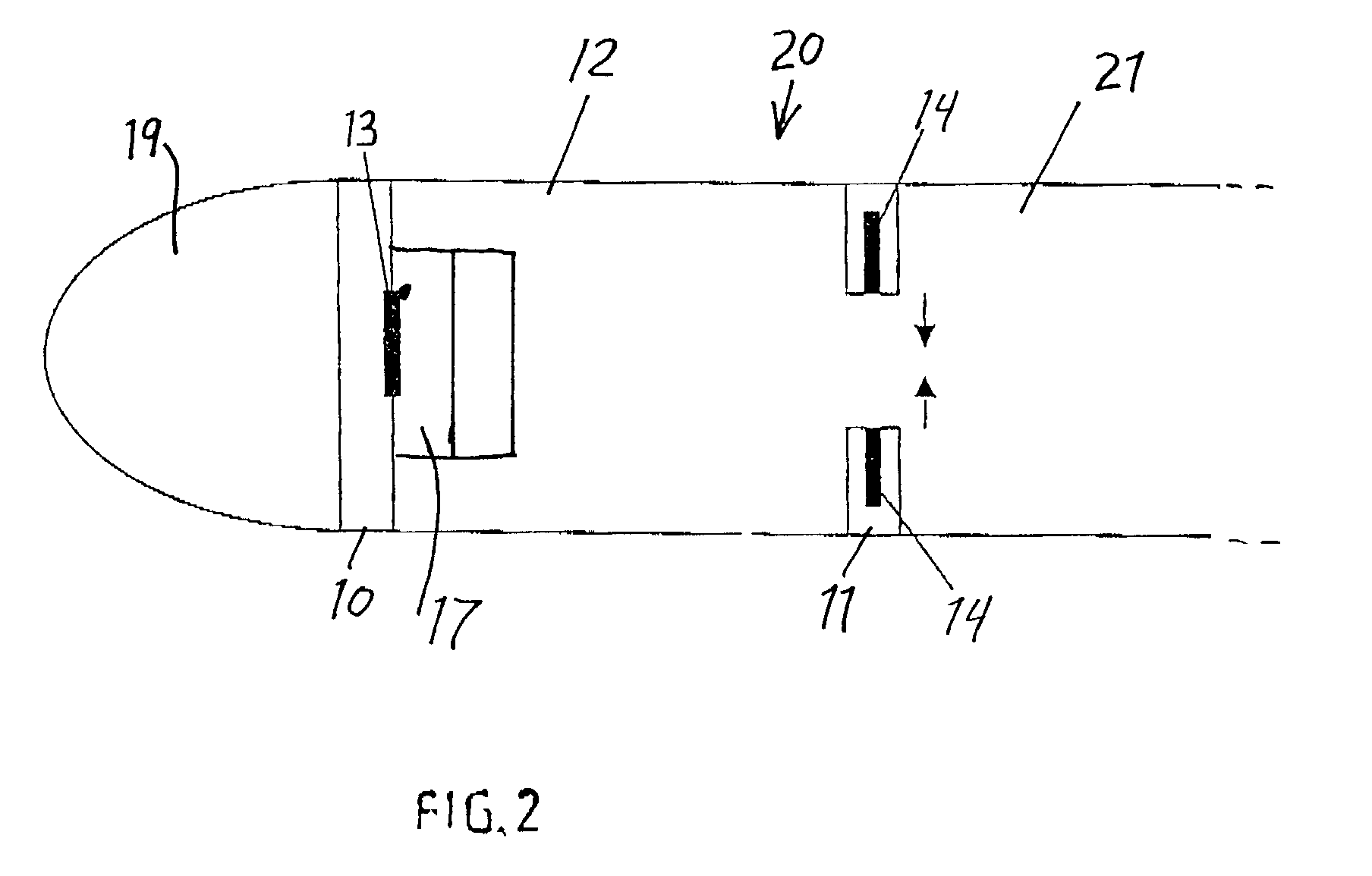Aircraft anti-terrorism security system
a security system and aircraft technology, applied in the field of aircraft anti-terrorism security system, can solve the problems of affecting the safety of aircraft crew, affecting the safety of aircraft, so as to achieve the effect of reducing the risk of terrorist attacks, and reducing the number of aircra
- Summary
- Abstract
- Description
- Claims
- Application Information
AI Technical Summary
Problems solved by technology
Method used
Image
Examples
Embodiment Construction
[0018] The major components of the aircraft cabin security system comprise an information evaluation and monitoring system including an information acquisition unit 1, an information evaluation unit 2, an operating unit 3, and an alarm unit 4, as well as various sensors (which will be described in detail below) connected to inputs of the information acquisition unit 1, optical warning signal devices 5 and 7 connected to outputs of the alarm unit 4, acoustic warning signal devices 6 and 8 connected to outputs of alarm unit 4, and various countermeasure devices or terrorist suppression devices (to be described in detail below) connected to one or more outputs of the operating unit 3 to carry out terrorist suppression or countermeasure functions for hindering or suppressing aggressive activities of persons on board of an aircraft that would endanger the safety of persons or the aircraft. The general arrangement and interconnection of the various components is schematically illustrated ...
PUM
 Login to View More
Login to View More Abstract
Description
Claims
Application Information
 Login to View More
Login to View More - R&D
- Intellectual Property
- Life Sciences
- Materials
- Tech Scout
- Unparalleled Data Quality
- Higher Quality Content
- 60% Fewer Hallucinations
Browse by: Latest US Patents, China's latest patents, Technical Efficacy Thesaurus, Application Domain, Technology Topic, Popular Technical Reports.
© 2025 PatSnap. All rights reserved.Legal|Privacy policy|Modern Slavery Act Transparency Statement|Sitemap|About US| Contact US: help@patsnap.com



